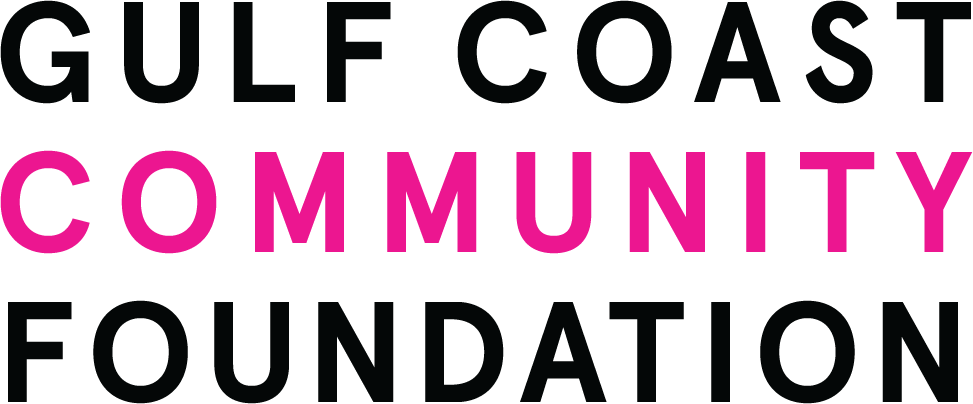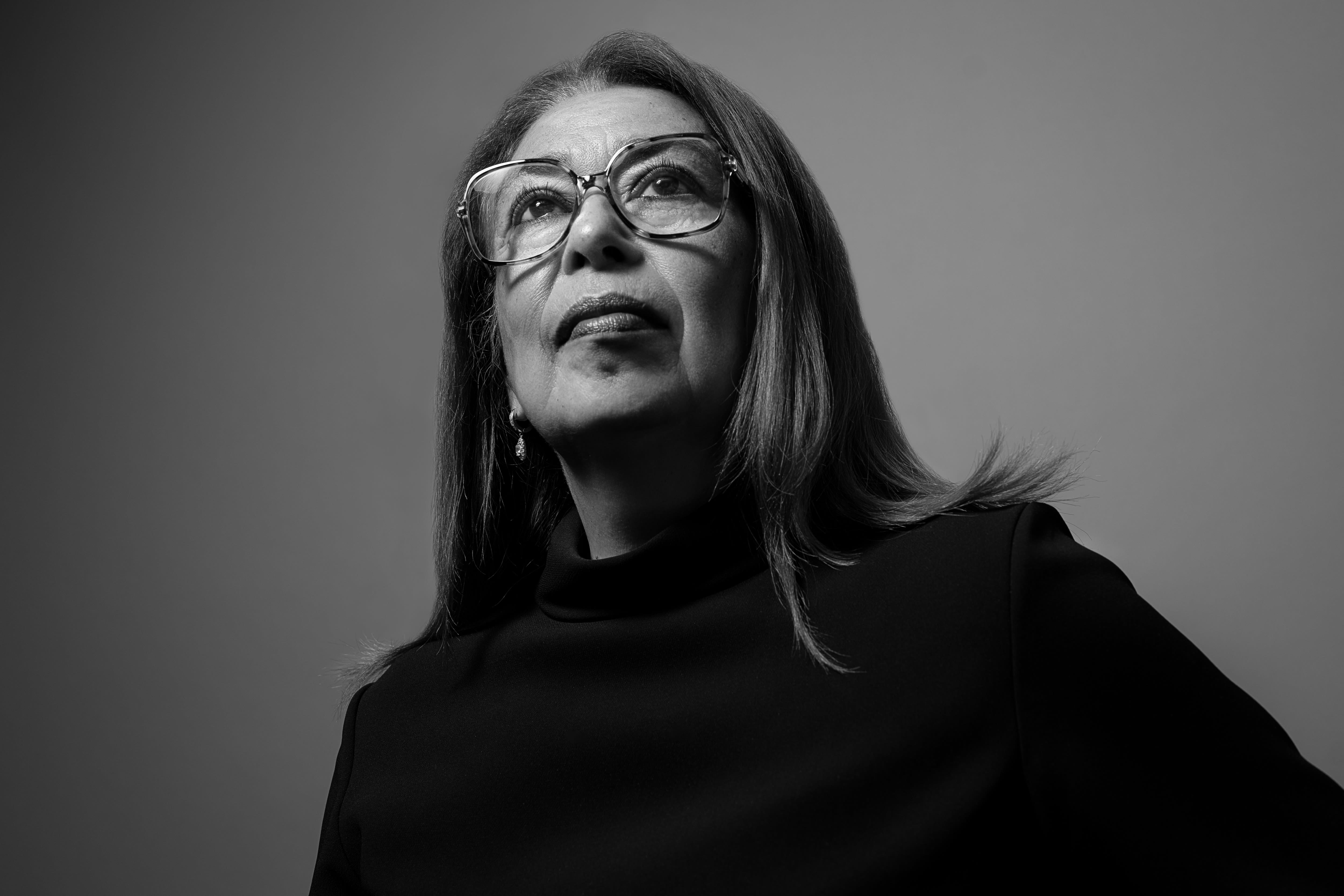Francina Hollaway on Growing Up in Segregated Florida and Integrating Her Elementary School
This article is part of the series Listening to Diverse Voices, proudly presented by Gulf Coast Community Foundation.

Francina Hollaway
Image: Michael Kinsey
When native Floridian Francina Hollaway was just six years old, she integrated an elementary school where she was one of only two Black girls in her class. To find stability within a system where she was unwelcome, Hollaway focused on excelling at math. "Writing can be critiqued because it's subjective," she explains. "But in math, there’s only one right answer.”
Mathematics remained a touchstone for Hollaway throughout her life. She earned a bachelor’s degree in finance from Florida State University and, in 1988, a MBA from Nova Southeastern University. In 2003, Hollaway opened her own firm, Francina M. Hollaway, CPA, LLC, after a career that included eight years as assistant vice-president and branch manager with Bank of America and more 25 years with Comcast as area business manager for its advertising division.
Today, at 62, Hollaway is a certified public accountant, enrolled agent and money manager. She’s actively involved with Links, Inc., as well as the Alpha Kappa Alpha Sorority, Masala Giving Circle, Gulf Coast Chapter of Florida Institute of Certified Public Accountants and the Manasota Chapter of Florida Society of Enrolled Agents.
Hollaway has lived in Sarasota for more than four decades and has three children and two grandchildren. She and her husband Mikel Hollaway, the first Black police chief for the City of Sarasota, have been married for 39 years.
Tell us about your childhood.
"I grew up 50 miles west of Tallahassee, in Greenwood. We had one traffic light, a general store, a post office and a bank.
"Because of family dynamics, on December 2, 1968, when I was in third grade, my mom got me out of school. I remember seeing her face in the window of the classroom door. I didn’t know that I wasn’t going back to school—I left all my stuff, including my box of eight Crayolas, in my desk. My mother told me that she was moving to Arizona and drove my sister and me to my aunt and uncle’s house. They had seven children of their own and they took us in, and later a cousin, as well. That was fun. We had our own built-in play group.
"Neither my aunt nor my uncle finished high school, but school was very important to them. In fact, of their seven kids, all except one had college degrees and some had a master’s degree. [In my aunt's house], you didn’t miss school and you were going to college. She passed away a couple years ago at 101, and that’s her legacy.
"My aunt and uncle’s house had two bedrooms and no running water. We had to go outside to the pump for water, and we bathed in a wash tub. But we didn’t know any different. Everything you could want was there, even fruit trees. Things could have turned out a lot different for me. I was very fortunate to grow up there."
Was racism openly discussed in your family?
"My aunt was born in 1919 and was afraid to talk much about it. But I was curious and always challenging things that didn’t seem right. For example, in seventh grade I tried out for the cheerleading squad and made the team with a white girl named Sarah. When I went to the doctor’s office to get the required physical, the waiting room was separated by a panel: one side for Blacks and the other for whites. I asked my aunt why we couldn’t go over there, and she shushed me.
"While waiting, I could hear when Sarah arrived, which was an hour after me. I was still waiting but she was called right in. I asked my aunt, ‘Why don’t we say something?’ But my aunt didn’t want to make waves. That was 1972 and things were still separate in the south.
"Over the years, we would ask my aunt questions about segregation, but she didn't respond, even though she knew about things like the lynching of a fellow church member’s father in Marianna, FL. I found out about it while reading Isabel Wilkerson’s book The Warmth of Other Suns. When our family asked my aunt about this, we couldn’t get any answers then, either. I think that generation was told not to talk about racism, and she stuck to it."
What was it like integrating a white school?
"I was in second grade, still living with my mother and father. At six, I knew what it meant, and I knew it that it had to be done. Plus, I was a bright student and knew the school had the best books and materials. At [my all-Black] school, we would get all its old books and materials.
"The white people didn’t want us at the school. Neither did the teachers—they just tolerated us. My whole life, I was a talkative and friendly child. Now, I was new at school and wanted to make friends, but I soon learned to not talk to the white kids, because that’s when the name-calling and the 'n-word' began. Also, I couldn’t talk to anyone because they wouldn’t talk to me. So, finally, I asked the teacher to stay in the classroom during recess because it was peaceful and nobody bothered me. There was a comfortable bean bag chair and a bookshelf with more than 100 books. By the time the school year was over, I'd read every book."
Did you have any encounters with other kids?
"Bus transportation wasn’t provided, so my parents had to drop me off and pick me up at school. One day, my mom was late, and I was sitting on the sidewalk waiting. A boy—probably in middle school—rode by on his bike. He had a can of green spray paint and sprayed me in the face. Even though my mother wasn’t on time, I wasn’t the only one there. Other white parents were picking up students and teachers were walking by. Somebody else had to see it happen.
"I was crying when my mother got there. I remember her taking me to the principal’s office and we found out that the boy was a judge’s son. I don’t know what happened to him. Probably nothing."
How did these experiences shape you?
"I was sad a lot, but I didn’t tell my parents because I was on a mission to integrate that school. I went from being in a comfortable environment to one where I tried to make myself invisible. It changed my whole life. I’m still that way now—quiet and reserved because of that experience. But I didn’t start out that way."
Did you ever confront any of the kids?
"In high school, two of the girls who tormented me [in elementary school] were in one of my classes. Kids do what their parents teach them; they probably heard the racial negativity at home, but I wanted them to know that I hadn’t forgotten what they did. They claimed that they didn’t remember anything about it, and acted like nothing happened."
When white people say racism doesn’t exist, how do you respond?
"I want to share this example. My daughter was born 35 years ago. At the time, I was going to a predominantly white church in Sarasota and had been in a Sunday school group for ladies for a couple years. One of ladies [baby-sat] kids, and I asked if she could take care of my newborn, too. She told me that she had to ask the other parents if it was OK with them if she also kept a Black child.
"When she said that, I knew that I couldn’t let her keep my daughter. If that’s the first thing she thought of—not that my daughter was just a child—then I couldn’t put my daughter in that kind of environment. The next Sunday, the woman told me, ‘Good news! [The other parents] are OK with it.’ She never realized that she did anything wrong."
Did you have any ‘firsts’ as a Black woman?
"Nearly 40 years ago, I became the first Black member of Sarasota’s Junior League. I had noticed around town all the good things the organization was doing and wanted to join. During my first call with the president, who is a nice woman, I was told to ‘not be surprised if no one sat next to me at a meeting.’ So I had to become a member."
What would you like your white friends or acquaintances to be doing right now?
"Treat us like you would treat your white friends. One example of this comes to mind: I mentioned to a white colleague that when I met a new white co-worker, that she was comfortable around me, and that I could tell that she had experience with Black people. I could feel the vibe.
"The colleague [I was speaking with] asked, ‘What about me?’ So I told her the truth: that I wouldn’t be welcome in her home for dinner, and I knew that. She started crying, told me that was true and apologized.
"So I say get out of your comfort zone and make the effort to treat us like anyone else. Look at me as someone you would invite to your home."
Listening to Black Voices is a series created by Heather Dunhill




